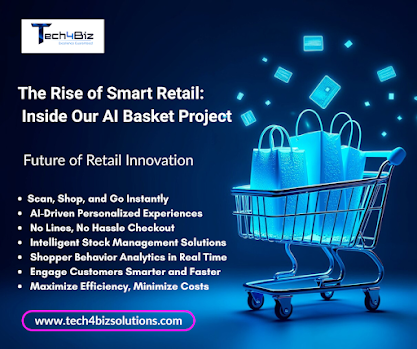The Future of Medical Diagnostics: AI-Powered Insights
In the ever-evolving landscape of healthcare, AI-powered insights are redefining how medical diagnostics are conducted. By leveraging the vast potential of artificial intelligence (AI), healthcare providers are gaining unprecedented accuracy, speed, and efficiency in identifying and diagnosing medical conditions. As AI technology continues to evolve, it is poised to revolutionize diagnostic practices, enhance patient care, and reduce the burden on healthcare systems. This article explores how AI is transforming medical diagnostics and shaping the future of healthcare.
Enhancing Diagnostic Accuracy
One of the most significant benefits of AI-powered diagnostics is improved accuracy. Traditional diagnostic methods rely heavily on the clinician's expertise and experience, leaving room for human error. AI systems, on the other hand, can analyze vast amounts of medical data and identify subtle patterns that may be overlooked by human eyes.
For example, AI-powered imaging tools are being used to analyze X-rays, MRIs, and CT scans with remarkable precision. These systems can detect early signs of conditions such as cancer, heart disease, and neurological disorders. By providing clinicians with more accurate and detailed information, AI helps reduce misdiagnoses and ensures that patients receive timely and appropriate treatment.
Deep learning algorithms are particularly effective in medical imaging. These algorithms are trained on large datasets to recognize specific patterns and abnormalities. As they continue to learn and improve over time, their diagnostic accuracy approaches or even surpasses that of human experts.
Speeding Up Diagnostic Processes
Time is a critical factor in medical diagnostics, especially for conditions that require urgent intervention. AI-powered diagnostic tools can process and analyze data at lightning speed, significantly reducing the time it takes to arrive at a diagnosis.
For instance, in emergency departments, AI-powered triage systems can quickly assess patient symptoms and prioritize care based on the likelihood of critical conditions. This enables healthcare providers to make faster, data-driven decisions and improve patient outcomes. Additionally, AI can automate routine diagnostic tasks, freeing up clinicians to focus on more complex cases and patient care.
Personalized Diagnostics and Treatment Plans
Personalized medicine is a growing trend in healthcare, and AI is playing a pivotal role in its advancement. By analyzing a patient's genetic, lifestyle, and medical history data, AI can provide highly individualized diagnostic insights and treatment recommendations.
AI-powered genomic analysis is particularly transformative. By identifying genetic markers associated with specific diseases, AI can help predict a patient’s likelihood of developing certain conditions. This enables early interventions and the development of tailored treatment plans that address the patient’s unique needs. Personalized diagnostics not only improve outcomes but also enhance patient satisfaction and engagement in their healthcare journey.
AI-Powered Insights in Chronic Disease Management
Chronic diseases such as diabetes, hypertension, and cardiovascular conditions are leading causes of morbidity and mortality worldwide. Managing these conditions effectively requires continuous monitoring and timely interventions. AI-powered diagnostic tools are making it easier to monitor chronic conditions and predict potential complications.
For example, continuous glucose monitoring (CGM) systems for diabetes patients use AI algorithms to analyze blood sugar trends and predict fluctuations. These systems can send real-time alerts to both patients and healthcare providers, enabling immediate action to prevent hyperglycemia or hypoglycemia. Similarly, AI can analyze blood pressure and heart rate data to detect early signs of cardiovascular events, allowing for prompt medical intervention.
Reducing Diagnostic Errors
Diagnostic errors can have serious consequences, leading to delayed or inappropriate treatments. AI-powered insights help mitigate these errors by providing clinicians with comprehensive and evidence-based recommendations.
Natural language processing (NLP) is a key AI technology used in reducing diagnostic errors. NLP can analyze unstructured data, such as clinical notes and lab reports, to extract relevant information and highlight potential red flags. By synthesizing data from multiple sources, AI systems can present clinicians with a complete and accurate picture of the patient’s condition.
Decision support systems (DSS) powered by AI also enhance diagnostic accuracy. These systems provide real-time guidance based on the latest medical research and clinical guidelines, helping clinicians make informed decisions and avoid potential errors.
Remote Diagnostics and Telemedicine
The rise of telemedicine has accelerated the adoption of remote diagnostic solutions, and AI is at the forefront of this transformation. AI-powered tools enable remote consultations and diagnostics, making healthcare more accessible to patients in rural or underserved areas.
Wearable devices and connected health platforms collect and transmit real-time health data to healthcare providers. AI algorithms analyze this data to detect abnormalities and provide diagnostic insights. For example, wearable ECG monitors can detect irregular heart rhythms and alert cardiologists for further evaluation. This approach ensures that patients receive timely care without the need for in-person visits.
Challenges and Ethical Considerations
While AI-powered diagnostics offer numerous benefits, they also come with challenges and ethical considerations. Data privacy and security are major concerns, as AI systems rely on vast amounts of sensitive patient data. Ensuring compliance with privacy regulations such as HIPAA is essential to protect patient information.
Bias in AI algorithms is another concern. If the training data used to develop AI models is not representative of diverse patient populations, the algorithms may produce biased or inaccurate results. To address this issue, healthcare organizations must prioritize transparency, fairness, and inclusivity in AI development and implementation.
The Road Ahead
The future of medical diagnostics is undeniably AI-driven. As AI technology continues to advance, its integration into healthcare will become even more seamless and widespread. Collaboration between healthcare providers, technology developers, and regulatory bodies will be critical to ensuring the safe and effective use of AI-powered insights.
In conclusion, AI-powered insights are transforming the future of medical diagnostics. By enhancing accuracy, speeding up diagnostic processes, and enabling personalized care, AI is paving the way for a new era of healthcare excellence. As the industry embraces these innovations, patients and providers alike stand to benefit from more efficient, accurate, and patient-centric diagnostic solutions.



.png)
Comments
Post a Comment